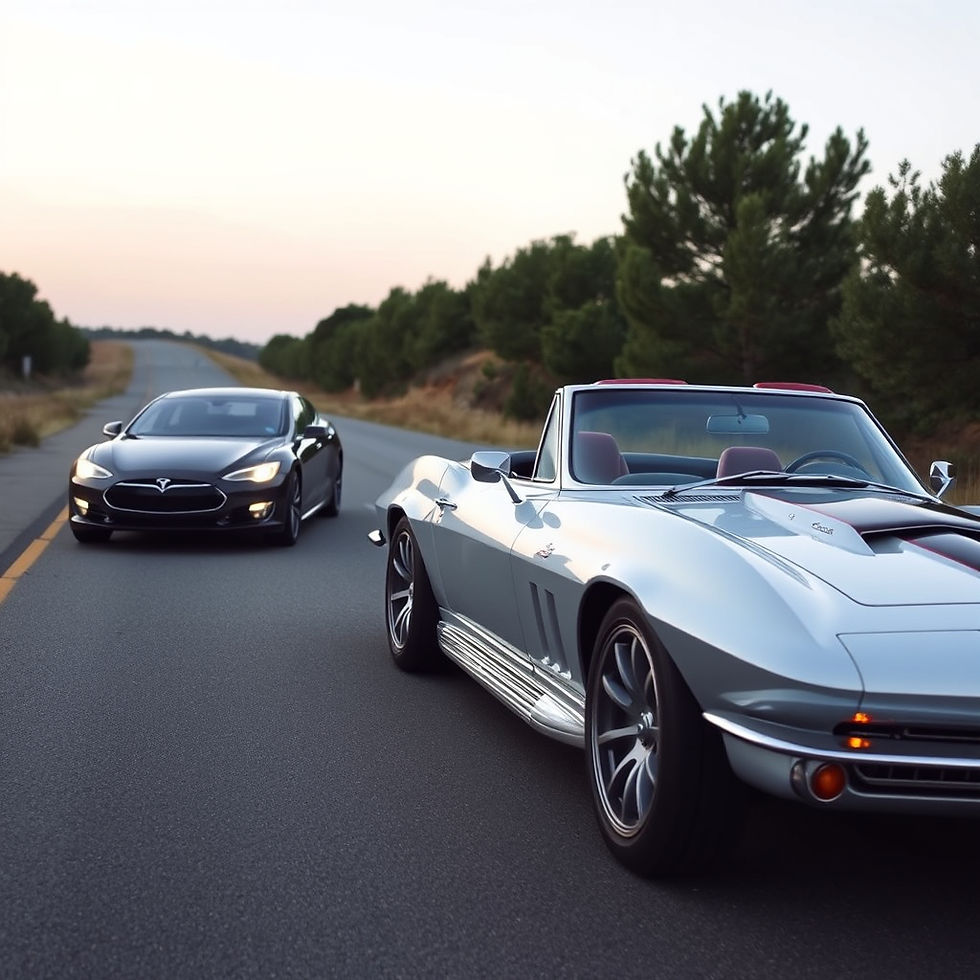Preserving Automotive Heritage: The Case Against Electrifying Classic Cars
- Jesmond John Micallef
- Jul 27, 2025
- 3 min read

Classic cars possess a captivating allure that resonates with enthusiasts and collectors alike. They are not just modes of transportation; they represent creativity, engineering excellence, and a nostalgic connection to a different time. As the automotive industry increasingly embraces electrification, the debate intensifies over whether classic cars should be converted to electric engines. This post explores why converting these iconic vehicles dilutes their uniqueness, charm, and value, emphasizing the need to protect our automotive heritage.
The Essence of Classic Cars
Classic cars encapsulate a rich history that links enthusiasts to the past. Take the sleek contours of a 1965 Mustang or the unmistakable growl of a vintage Jaguar; these vehicles provide experiences that modern cars simply cannot match. Each model tells a story, representing peak moments in design and engineering.
By transforming them into electric vehicles, we risk erasing that storytelling aspect. The spirit of these cars is closely tied to their original combustion engines. The sound, the feel, and even the smell of gasoline are all integral elements of their charm and history. For instance, a classic V8 engine delivers a visceral experience that an electric motor cannot mimic, presenting numbers and feelings that electric variants often lack.
The Purity of Performance
The driving experience of a classic car is unparalleled for enthusiasts. The interaction with the engine, the manual transmission, and the tactile feedback creates a bond between driver and machine. Converting to an electric engine removes these distinctive features, turning these cars into something unfamiliar.
Picture yourself behind the wheel of a modified classic sports car powered by batteries. While it may boast swift acceleration—perhaps reaching 60 mph in under four seconds—what is missing is the direct connection that classic cars are known for. The mechanical sounds, vibrations, and varied driving dynamics heighten the thrill, making electric versions feel bland in comparison.
Impact on Value
From a financial standpoint, converting a classic car to electric can severely affect its market value. Collectors and fans often pursue original models in excellent condition. A classic car that's been modified with an electric engine could lose its monetary worth and also alienate the very community that loves it.
Collectors are discerning. Research shows that vehicles retaining their original configuration tend to command a higher price. For example, a fully restored 1967 Chevrolet Camaro in original condition might sell for $50,000, while a modified version may only fetch $30,000. Such modifications can lead to devaluation, making them impractical investments.
The Appeal of the Community
Owning a classic car fosters a sense of belonging among enthusiasts. Events like car shows and meet-ups are vibrant communities where enthusiasts share restoration tips, rare parts, and expert advice on maintaining traditional combustion engines.
Converting to electric can fracture this community, distancing those who appreciate the craftsmanship of original vehicles. The shared passion for classic cars is rooted in their history, and altering that history puts this shared enthusiasm at risk. The forums and gatherings foster a sense of connection that cannot be easily replaced by modern conversations about electric modifications.
Environmental Considerations
Although proponents of electrifying classic cars cite environmental benefits, it is crucial to recognize the broader implications of such conversions. The production of electric vehicle batteries raises significant concerns about resource extraction, energy consumption, and waste disposal.
Instead of electrification, classic car enthusiasts can explore modern fuels or upgrade systems that enhance efficiency while keeping original components intact. By doing this, they can honor the authenticity of the classic while still contributing to a sustainable future. For example, using biofuels or improved carburetion systems might yield a 20% increase in fuel efficiency without sacrificing the original vehicle's character.
Upholding Our Automotive Heritage
Converting classic cars to electric engines threatens their uniqueness, charm, and overall value. By preserving these automotive treasures in their original condition, we honor the rich legacy they represent.
The roar of a classic engine or the thrill of shifting gears connects us to a significant chapter in automotive history that deserves recognition. As we advance into an electric future, we must remain vigilant about preserving our past.
Choosing to refrain from electrifying classic cars is not only a choice for the present but a commitment to ensuring that future generations are able to appreciate the beauty and craftsmanship of these remarkable machines. Let us continue to celebrate what makes classic cars truly extraordinary.




Comments